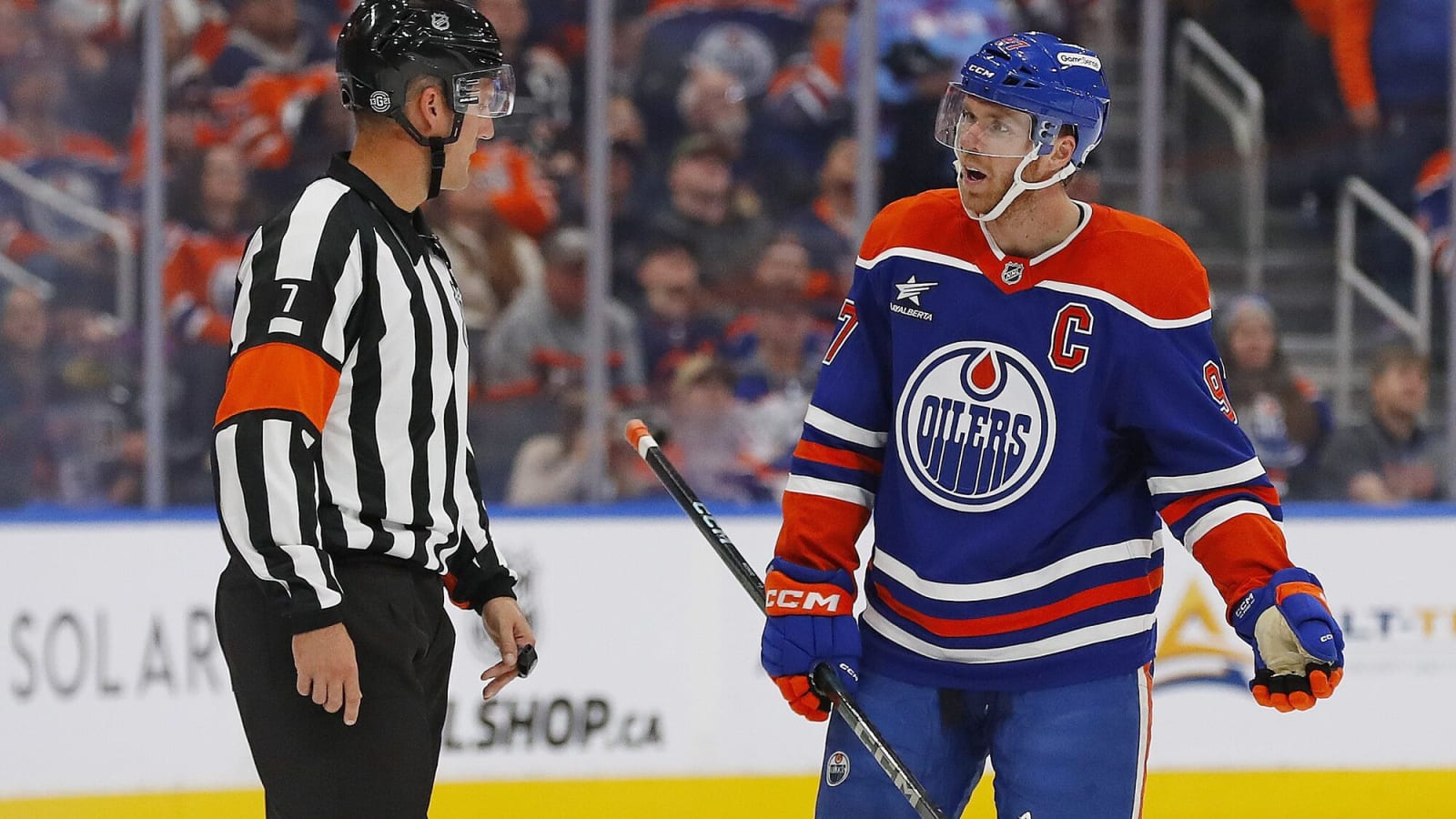
It’s early. In fact, it’s painfully early in the 2024-25 NHL season – making this a classic time for overreaction. That said, not every visceral reaction is the wrong one. So let’s sort out a few.
Here are Frank’s five fallacies from the first week of the season:
1. A prolonged slow start by the Edmonton Oilers is without consequence
No one should be truly worried in Edmonton with the Oilers’ 1-3-0 stumble. How many stints throughout a season are Connor McDavid, Leon Draisaitl, Zach Hyman and Ryan Nugent-Hopkins going to combine for exactly one goal? The answer is not many. However, thinking that the Oilers can start 2-9-1 again is fine because they made it to Game 7 of the Stanley Cup Final probably isn’t wise. This isn’t the same team – they don’t have the same defense or same team speed. Plus, the Oilers reeled off 24 wins in a 27-game span last year and set a new franchise record win streak (16). That might not be duplicable. And more than anything, it’s a reminder that these games matter. The Stanley Cup Final might’ve had a different result with home-ice advantage.
2. The Pittsburgh Penguins are washed
Yep, that’s what everyone was thinking after that 6-0 drubbing at the hands of the New York Rangers on opening night. The Penguins couldn’t keep up. They’re over-reliant on their aged core. And they need multiple superstars to step up on any given night in order to win. Some of those things may have kernels of truth. But the Penguins (3-2-0) awoke on Thursday in third place in the Metropolitan by points percentage, with Evgeni Malkin atop the points table. His 11 points in five games counts for the best start of his career, and the best start by any Penguin since Mario Lemieux in 2003. What year is it, anyway?
3. The Colorado Avalanche can outrun their poor goaltending
Woof. You know it’s been a rough start for the Avalanche when Alexandar Georgiev allowed four goals on 24 shots on Wednesday night against Boston and remained in goal for the entire game – and both of those things were an improvement. His save percentage on the season actually went up, to a paltry .800. He’s allowed the most goals in the league at 17 in four games. In 2022, the Avalanche proved they could win the Cup with marginal goaltending. This time, at least for the foreseeable future, they won’t be able to outrun it. They don’t have the depth. Gabriel Landeskog and Valeri Nichushkin are out, but so are Jonathan Drouin and Arrturi Lehkonen and Devon Toews. They can’t go out and replace those players on the cap, because they need to activate them later, and they’re paying the price now.
4. The Winnipeg Jets’ stout defensive metrics will regress to the mean
Hand up, I’m ready to admit that I was wrong on this one. In season prediction mode, I vastly underestimated the power of the Jets’ identity and commitment to team defense. Yes, Connor Hellebuyck can cover up a lot of mistakes. But they are a stubborn, difficult team to play against and they work hard. So far, the Jets have allowed two goals against in three games. They tied with the Florida Panthers last season for fewest goals allowed (198) at a time when scoring is up significantly, and any number under 200 goals against is a true accomplishment. Sometimes, when so many things go right in one season, we look for reasons to pick it apart and say it can’t happen again. That was wrong.
5. We know what goaltender interference looks like
It’s been a tough start to the season for the NHL’s Situation Room in Toronto, which has drawn the ire of multiple fanbases in Edmonton, New York, Tampa Bay and Carolina. The hard truth is that many NHL coaches believe goaltender interference is now down to a coin flip – there is no telling where the call will land. That probably isn’t what it should be. Video review and coach’s challenges were designed to eliminate the egregious miss. They weren’t implemented to nitpick every video frame – and we’ve seen some seriously questionable calls overturned to this point. Regardless of the way the rulebook is written, there should be a common sense element to addressing goaltender interference, almost like you should know it as soon as you see it.
More must-reads:
- Stars goaltender gets much-deserved megadeal
- Blackhawks place defenseman on IR with groin injury
- The 'Most QB starts by NFL franchise' quiz
Breaking News
Customize Your Newsletter
 +
+
Get the latest news and rumors, customized to your favorite sports and teams. Emailed daily. Always free!
